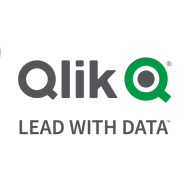

Qlik Compose and Azure Data Factory are both powerful tools in the category of data integration and transformation. Despite Qlik Compose's appealing pricing and support, Azure Data Factory often emerges as the preferred choice due to its robust features and superior scalability.
Features: Qlik Compose offers data warehouse automation, change data capture, and lifecycle management, enabling accelerated deployment of analytics-ready data. Azure Data Factory shines with its extensive data orchestration and transformation tools, seamless integration with various cloud services, and over 100 out-of-the-box connectors supporting diverse data sources. It is also recognized for its flexibility and the ability to handle complex data flows, making it ideal for large-scale enterprise applications.
Room for Improvement: Qlik Compose could enhance its real-time processing capabilities and expand its cloud integration options to better compete with Azure's flexibility. Additionally, improved scalability features could help it cater to more extensive and complex deployments. On the other hand, Azure Data Factory users desire improvements in interface speed and more advanced monitoring features. Some users also find that its pricing model can become costly, possibly limiting its appeal for smaller companies with budget constraints.
Ease of Deployment and Customer Service: Qlik Compose's deployment is user-friendly with a focus on model-driven pipelines, beneficial for teams with limited technical expertise. It is also noted for its reliable support system. Azure Data Factory, offering detailed documentation and community support, suits intricate deployments across diverse environments. While its setup may be complex, these resources aid in troubleshooting and ensure a smooth deployment process.
Pricing and ROI: Qlik Compose is praised for its straightforward and cost-effective pricing, aligning with its automated functionality. Azure Data Factory, though perceived as more expensive due to its extensive capabilities, is considered worth the investment for those needing advanced and scalable solutions, offering significant ROI for enterprises with comprehensive data strategy requirements.
| Product | Market Share (%) |
|---|---|
| Azure Data Factory | 5.2% |
| Qlik Compose | 1.0% |
| Other | 93.8% |


| Company Size | Count |
|---|---|
| Small Business | 31 |
| Midsize Enterprise | 19 |
| Large Enterprise | 55 |
| Company Size | Count |
|---|---|
| Small Business | 3 |
| Midsize Enterprise | 3 |
| Large Enterprise | 6 |
Azure Data Factory efficiently manages and integrates data from various sources, enabling seamless movement and transformation across platforms. Its valuable features include seamless integration with Azure services, handling large data volumes, flexible transformation, user-friendly interface, extensive connectors, and scalability. Users have experienced improved team performance, workflow simplification, enhanced collaboration, streamlined processes, and boosted productivity.
Qlik Sense is a powerful business intelligence tool that offers a range of features to help organizations make faster and more informed decisions. Its primary use cases include operational and financial dashboards, self-service reporting, and centralized access to cross-functional reports. The solution is praised for its mobile platform, ease of use, data-sharing capabilities, and extensibility.
Qlik Sense has helped organizations improve data literacy, reduce time consumed in complex reports, and provide widely available MI to senior stakeholders. It also enables self-service analytics, improves data quality and governance, enhances collaboration, and reduces costs.
We monitor all Data Integration reviews to prevent fraudulent reviews and keep review quality high. We do not post reviews by company employees or direct competitors. We validate each review for authenticity via cross-reference with LinkedIn, and personal follow-up with the reviewer when necessary.